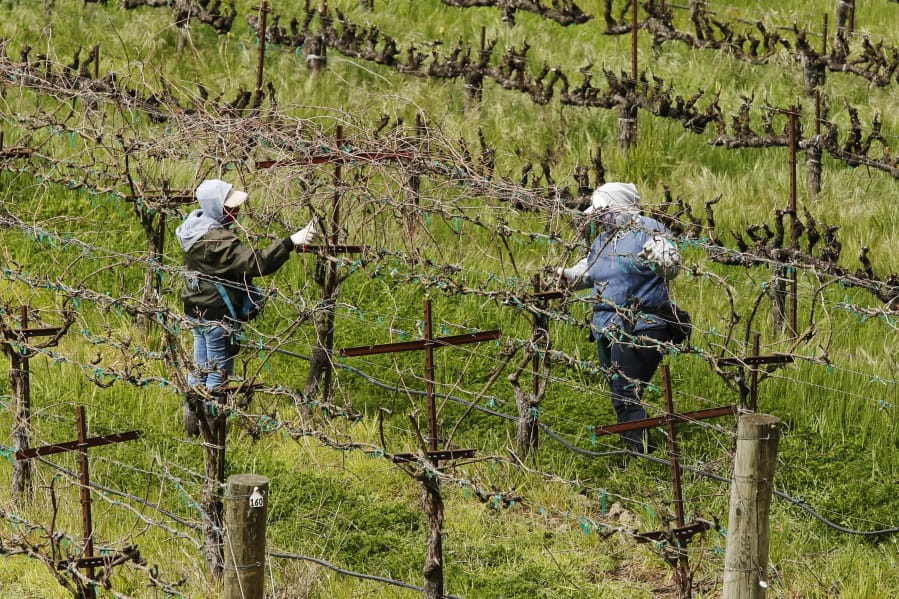SACRAMENTO, Calif. — Salvador Calzadillas isn’t worried about catching the coronavirus when he’s picking mandarin oranges in the trees in central California. But he said the mere act of getting to the groves each day puts him and his wife, also a farmworker, at risk, and there’s nothing they can do to change that.
Farmworkers, after all, can’t work from home.
Calzadillas and his wife are among half a dozen workers who crowd into a car or van to get to the groves a 40-minute drive away. There, they are in a group to get daily instructions — without regard for social distancing, he said.
“There’s been no changes so far, everything is the same,” Calzadillas said. “Many of my co-workers say it’s like we’re immortal, we’re working just the same. There’s no prevention, and we keep working.”
The 31-year-old is one of many workers on farms operating as essential businesses in the heart of California’s farm-rich Central Valley, supplying food to much of the United States even as schools, restaurants and stores have closed down because of the virus.
More than a third of the country’s vegetables and two-thirds of its fruits and nuts are grown in California, whose farms and ranches brought in nearly $50 billion in 2018, according to the state Department of Agriculture.
Agriculture groups and union leaders are urging employers to take extra precautions to prevent the outbreak from spreading among California’s farmworkers, who are already in short supply. Workers getting sidelined by illness could jeopardize crop yields and disrupt the food supply.
Some farms are heeding the call, union officials and growers say. But it can be difficult to separate workers by 6 feet as recommended because of the way certain crops are grown, said Dave Puglia, president of Western Growers, a group representing family farmers in California, Arizona, Colorado and New Mexico.
Efficiency is critical, he said, with farmers facing pressure to restock grocery shelves.
“You would have to stagger the workers who are harvesting,” Puglia said. “That is a very inefficient and a very, very costly way to operate, and most farmers wouldn’t be able to do it. They would be losing way too much money.”
Western Growers said members have added sanitation stations in the fields and required hand-washing before and after work as well as spaced out workers in packing facilities.
United Farm Workers is using the moment to push for longstanding requests, including removing the need for a doctor’s note and other hurdles to getting sick pay. In a letter to the agriculture industry, the union said workers should be able to wash their hands frequently and be encouraged to stay home if they are sick.
“What we’re finding is that most growers are not communicating with their employees to even share the basics: how to practice best practices (like) washing your hands” and keeping distance from others, said Armando Elenes, secretary treasurer at United Farm Workers, which represents up to 27,000 workers.
Joe Pezzini, president of vegetable grower Ocean Mist Farms, said his office and sales staff are working remotely wherever possible.
He said the company, which operates in California’s Coachella Valley and Central Coast, had workers use gloves and sanitized equipment to ensure food safety long before the virus appeared.




